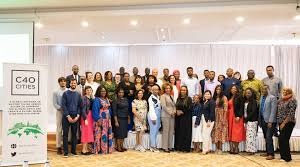
The Horn of Africa (HoA) is on high alert as the increasing militarization in Somalia raises fears of a potential resurgence of terrorism. Ethiopia, a major player in Somalia’s peacekeeping efforts, has condemned the growing presence of foreign forces in the region, warning that this could destabilize regional security and strengthen Al-Shabaab, the terrorist group.
Ethiopia’s concerns are tied to Somalia’s fragile security situation, where renewed militant activity could undo years of progress against terrorism. Ethiopian Foreign Minister, Ambassador TayeAtske-Selassie, voiced concerns about a possible “collusion” between the Somali government and external forces, which could threaten regional stability. Despite Ethiopia’s significant efforts to stabilize Somalia, recent moves by the Somali government to align more closely with foreign actors have increased tensions. Ethiopia feels sidelined and fears these developments could reverse its achievements in the region.
A Political Science and International Relations expert Professor Brook Hailu noted that Ethiopia’s contributions to Somalia’s peace are often overlooked. Ethiopian troops have been on the front lines against Al-Shabaab and have built essential infrastructure in Somalia.
Ethiopian forces were active in Somalia even before the African Union Mission in Somalia (AMISOM) took over. Once AMISOM was deployed, Ethiopia took on the most challenging roles, fighting Al-Shabaab effectively. Prof. Brook highlighted that Ethiopian troops have also supported local communities by building schools, roads, and health facilities, going beyond their military duties. These contributions are documented in United Nations reports.
Having paid a heavy price for Somalia’s peace, Ethiopia argues it should not be excluded from post-ATMIS peacekeeping efforts. The country expects support from the African Union and the United Nations Security Council in this regard.
However, Somalia’s recent actions, including its closer ties with Egypt-a country with a contentious history with Ethiopia-pose a significant threat to Ethiopia’s national interests. Prof. Brook suggests that the Intergovernmental Authority on Development (IGAD) and other regional bodies should mediate this dispute, and Ethiopia remains open to dialogue.
The Somali government must reconsider its security strategy. Without collaboration with neighboring countries like Ethiopia, it risks losing control over many regions. “How could the Cairo government manage Somalia’s peace? I see no likelihood of this,” questioned the scholar.
An analyst specializing in Nile River affairs and Ethio-Egypt relations, Zahid Zedan, added that while Somalia has the right to enter bilateral military agreements, including with Egypt, such agreements could pose a threat to Ethiopia. He stressed that Ethiopia must closely monitor these developments and be prepared to protect its interests.
“The relative stability in Somalia is due to Ethiopia’s efforts. Ethiopian troops have protected Somali government institutions and offices. Egypt cannot replicate that role; their objectives differ,” Zahid explained. He further suggested that Egypt’s dissatisfaction with Ethiopia’s ambitions, such as access to the sea and its stance on Nile River politics, could lead to a partnership between Egypt and Somalia that undermines Ethiopia and the region rather than ensuring Somalia’s peace.
Ethiopia views this shift in alliances as a direct threat to its national interests and a potential destabilizing factor that could reignite terrorism in the HoA. The situation remains volatile, with the potential to escalate into a broader regional crisis if not carefully managed, Zahid emphasizing the urgent need for diplomatic engagement and conflict prevention.
BY YESUF ENDRIS
THE ETHIOPIAN HERALD TUESDAY 3 SEPTEMBER 2024





